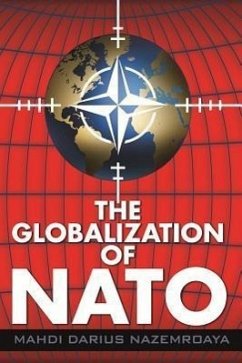Spawned by the Cold War, the North Atlantic Treaty Organization's existence was justified as a guarantee against any Soviet threats towards Western Europe. That raison d'être is long gone with the collapse of the Soviet Union and the end of the Cold War. Nevertheless NATO has expanded relentlessly eastward towards its former enemy, even though Communism has disappeared. Yugoslavia marked a turning point for the Atlantic Alliance and its mandate. The organization moved from a defensive posture to an offensive one under the pretexts of humanitarianism. Starting from Yugoslavia, NATO began its journey towards globalization, taking on a broader area of operations outside of the European continent, leading to NATO missions in East Africa, Afghanistan, and most strikingly, Libya. Increasingly symbolic of U.S. militarism and missile diplomacy, NATO has acted as an arm of the Pentagon and formally or informally moved into combat zones where the U.S. and its allies have been combatants. as the world increasingly militarizes through the globalization of NATO and the formation of new military counter-alliance.








